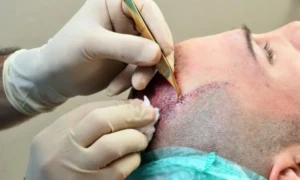Introduction
Communication is the cornerstone of human interaction, allowing us to express thoughts, share experiences, and build connections. However, for those grappling with speech and language disorders, this basic human function can become a formidable challenge. This is where the invaluable field of speech therapy steps in, offering tailored interventions and strategies to help individuals regain their voices and confidently navigate the world of communication. In this article, we delve into the world of speech therapy, exploring its significance, methodologies, and the profound impact it has on people of all ages.
Understanding Speech Therapy
Speech therapy, also known as speech-language pathology, is a specialized discipline that focuses on diagnosing, treating, and preventing communication and swallowing disorders. These disorders can manifest in various ways, ranging from difficulties with articulation and language to fluency issues and voice disorders. Speech-language pathologists (SLPs) are trained professionals who work closely with individuals to assess their specific communication challenges and create personalized intervention plans.
Early Intervention: Laying the Foundation
Early intervention is a pivotal aspect of speech therapy, as it lays the foundation for effective communication skills. Identifying and addressing communication challenges in children during their developmental years can lead to remarkable progress. SLPs collaborate with parents, caregivers, and educators to design individualized treatment plans that incorporate speech exercises, language development activities, and interactive interventions. Early intervention not only improves communication abilities but also has a positive impact on cognitive and social development, setting children on a trajectory toward success.
Addressing Articulation and Phonological Disorders
Articulation and phonological disorders can impede clear speech production. Speech therapists utilize diverse techniques, such as articulation exercises that focus on specific speech sounds. Through guided practice in tongue and lip placement, these exercises aid in improving articulation clarity and enhancing confidence in verbal expression.
Nurturing Language Development and Expression
Language disorders encompass difficulties in comprehending and utilizing language effectively. Speech therapists employ strategies like modeling correct language structures, engaging in interactive activities, and promoting expressive language skills through storytelling and discussions. These interventions empower individuals to convey thoughts and emotions accurately, enriching their ability to connect meaningfully with others.
Tackling Fluency Challenges
Stuttering, a common fluency disorder, can have profound effects on an individual’s self-esteem and social interactions. Speech therapists employ techniques such as breathing exercises, gradual speech practice, and desensitization to help individuals manage and eventually overcome stuttering. Through consistent practice and exposure, individuals gain mastery over their speech patterns, resulting in increased fluency and enhanced self-assurance.
Cultivating Vocal Health
Voice disorders can impact the pitch, volume, and quality of an individual’s voice. Speech therapists address these concerns by teaching vocal hygiene practices, vocal exercises, and vocal modulation techniques. By strengthening vocal muscles and adopting healthy vocal habits, individuals regain control over their voice, ensuring effective communication without strain or discomfort.
Fostering Social Communication
For individuals with conditions like autism spectrum disorder or social communication disorders, speech therapy is instrumental in developing essential social skills. Speech therapists facilitate social interaction through role-playing, pragmatic language exercises, and real-life scenarios. These interventions empower individuals to navigate social situations with confidence, fostering genuine connections with peers and the broader community.
Tailored Approach for Adults
Speech therapy extends its transformative reach to adults as well. Whether due to stroke, traumatic brain injury, or degenerative conditions such as Parkinson’s disease, adults may experience communication challenges. Speech therapists create customized rehabilitation plans that focus on rebuilding language skills, restoring vocal control, and enhancing overall communication abilities.
Conclusion
In a world defined by communication, the impact of speech therapy cannot be overstated. It goes beyond the realm of correcting speech sounds; it profoundly touches lives by nurturing self-expression, cultivating relationships, and bolstering self-confidence. From the child taking their first steps in verbal communication to the adult relearning speech after a stroke, speech therapy is a beacon of transformation.
As technology and research continue to evolve, speech therapy evolves alongside them, embracing innovative methods and tools to enhance its effectiveness. With the unwavering dedication of speech-language pathologists and the steadfast support of families and communities, individuals can surmount communication barriers and flourish.
In a society where effective communication is integral to personal and professional success, speech therapy stands as a beacon of empowerment. It reminds us that every voice is unique and valuable and that with the right guidance and determination, individuals can harness the power of their words, forge connections, and triumph over their goals. Through speech therapy, individuals not only find their voice but also rediscover their confidence and ability to engage with the world around them.






























